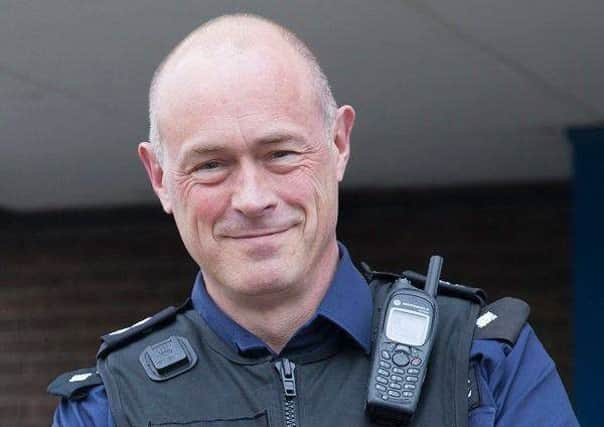Tragic lead-up'¨to cockling disaster in bay


Speaking exclusively to The Visitor, Inspector Geoff Tagg said that 35 Chinese cocklers in Morecambe were locked up on suspicion of being illegal immigrants just two weeks before the tragedy.
But they were released pending further investigations as they had no criminal records.
Advertisement
Hide AdAdvertisement
Hide AdGeoff, who has just retired, said: “Some of those people subsequently died in the cockling disaster.”
A total of 23 Chinese cocklers were cut off by the tide in Morecambe bay and drowned on February 5, 2004.
Geoff , 51, said that a call to police about people butchering meat on the pavement two weeks before the disaster was the first contact they had with cockling gangs in Morecambe.
“It was obvious they were working in a gang and they were here for the cockling,” he said.
Advertisement
Hide AdAdvertisement
Hide Ad“The house they were in in the West End had a few people living in every room.
“I locked them up on suspicion of being illegal immigrants. Immigration were furious because they had to take people from passport control at Manchester Airport to deal with the Chinese.
“Some were part of the gang that were sent back into the bay and died.
“We got called out the day after the disaster to comb the coastline and to try and find evidence.
Advertisement
Hide AdAdvertisement
Hide Ad“All the Chinese had come from Liverpool so we went down there every day for investigations.
“We also went to Cumbria at the other side of the bay because things got washed up over there.
“We had to look through any items of clothing that were found for evidence.”
Geoff first joined the police in Morecambe at the age of 21 in 1986.
Advertisement
Hide AdAdvertisement
Hide AdHe said: “It’s the only job I ever applied for and wanted. My dad was also a policeman, a detective.
“I lived in Morecambe above the police station, which used to be a male hostel. There was a canteen downstairs and we had our own cleaners, who mothered us. There was no technology then, everything was handwritten.
“It was still olde worlde, a bit military. There was no CCTV, we were the CCTV, we would climb on the roof of M&S and buildings on King Street to survey the streets. Lancaster was really violent then, Morecambe was the place to go out.
“At the time there was a terrible spate of shop windows being smashed and there was a lot of fighting and rivalry between estates such as Ryelands, the Marsh and the Ridge.
Advertisement
Hide AdAdvertisement
Hide AdGeoff described how he would walk foot patrol in Lancaster town centre and if a job came through on the two-way radio he would sprint through town to it.
“We weren’t allowed to drive for two years, we had to walk foot patrol,” he said.
“I spent two years as a probationary officer and then I worked as a response officer where you go after specific offenders.
“I got promoted and went to Blackpool which was a different world again.
Advertisement
Hide AdAdvertisement
Hide Ad“It was still a really busy town and I was dealing with jobs until 4.30am.
“I came back here as a sergeant in 1995 and that is when Morecambe had just started to go downhill. One particular night there were only four on duty and stuff kicked off outside Brooks nightclub.
“Me and a female officer were trying to fight a bloke each.
“That was when he bit my wrist and crushed all my tendons. I had to wear a pot on my wrist for a few weeks.”
“I’ve also had bricks and knives thrown at me.
Advertisement
Hide AdAdvertisement
Hide Ad“At one house in Bare, a man answered the door with a harpoon in his hand.”
Geoff served time on the support unit that dealt with murder scenes.
“You have to become desensitised to it,” he said.
“We dealt with a murder in Nether Kellet where a man had been stabbed to death and buried in the garden.
“We had to do a forensic recovery at the scene, sieving all the soil out of the grave before we dug him out and recovered him.
Advertisement
Hide AdAdvertisement
Hide Ad“We also found the murder weapon at the scene. The entire team got a commendation for their work.
“We have had to deal with two murders at caravan sites.
“At one, a woman had her throat cut but was still speaking. I had to get someone to video her on the presumption she might die. That was quite impactive on the team.”
Geoff is married to Suzanne, and has a son, Stephen, also a policeman, and a daughter Elizabeth.
Geoff added: “I will miss the people in the job but not the bureaucracy.”
Advertisement
Hide AdAdvertisement
Hide Ad“bined is the same as we had at Lancaster. Now the support unit teams are having to be cut to go onto response and to me it won’t work. I will miss the people in the job but not the bureaucracy.”
She said her boyfriend had been attacked but had run away.
“We had someone bleeding and someone found round the corner who had died.
“A car had left the murder suspect’s home address, which was picked up on cameras, I think his mum had come to collect him. The case was all dealt with in one shift.”
Geoff, 51, who is married to Suzanne, has a son Stephen and a daughter Elizabeth.
Advertisement
Hide AdAdvertisement
Hide AdHis son Stephen is also a policeman. He said: “When I first joined the teams were huge, now the team for Lancaster and Morecambe combined is the same as we had at Lancaster. Now the support unit teams are having to be cut to go onto response and to me it won’t work. I will miss the people in the job but not the bureaucracy.”